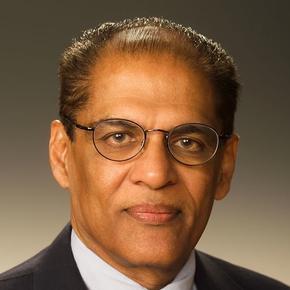
Thomas Alexander
- Mentor to CEO of venture-funded private companies
- Founder of many companies and a CEO many times
- Board member; VC; EIR; Professor of Entrepreneurial Management

- All 5 Best Practices
- Pre-Meeting Discovery Process
- One-on-One Call with Expert
- Meeting Summary Report
- Post-Meeting Engagement

Lonely at the Top: Help for CEOs When It Seems There Is No One To Turn To
Key Trends
- Due to the fast-paced life style, CEOs are isolating themselves in a closed environment.
For CEOs, this happens all the time: You meet another CEO or executive in the course of your work, and you find out that person has experience or expertise you might want to learn from. But there are more immediate tasks at hand. So you say, "Hey, let's get together for an hour sometime and talk about that." But the list of things that must get done right now never seems to get any shorter, and time is never found to follow up. It's the old saw: You're too busy chopping down trees to sharpen your ax. It's no longer news that the workday has become virtually 24/7 – and that the always-on nature of digital communication has created a lifestyle that only further isolates a CEO from a larger community outside his or her immediate associates.
- Email and social media force a CEO to walk very gingerly.
CEOs are expected to be active on social media to provide visibility and get exposure for their companies. You need to communicate to your prospects and employees alike through blogs, Twitter, Facebook. But you must be very careful. It is tempting to share drafts or express opinions with associates through email, and it may include information or opinions that would or should never make it into a formal published blog or posting. Still, those emails can "escape" what you think is a confidential loop. And when that happens, damaging information or comments can end up in wide distribution. This leaves the CEO feeling isolated and limited in his or her ability to gather feedback on ideas. And the result instead can be cautious and overly hygienic content that lacks impact and depth.
- Seeking advice is regarded as weakness, and CEOs feel pressured to project themselves as perfect at what they do.
Many CEOs believe they have to be perfect, or at least appear perfect, to their board members, colleagues and clients. That makes them reluctant to seek advice or help in areas where they are weak, to the detriment of their companies.
- The relationship of CEOs with members of their BODs has become increasingly uncertain.
For startup CEOs, the relationship with board members usually starts on an upbeat note. You bring them in as investors, they seem to like you, your company and your product. But as they become involved in oversight, they begin to scrutinize, play devil's advocate and perhaps even openly criticize you. It is easy for CEOs to begin doubting themselves as board members do their jobs, challenging you and pushing for better results. The fact that they can change you as easily as they change undershirts can leave a CEO feeling vulnerable and alone.
- The search for credible expertise when needed has become more complex and unpredictable.
The availability of information and supposed expertise has exploded to the point that it is difficult to know what information and expertise you can trust. Online, the elimination of gatekeepers has made it difficult for a CEO looking for help to know what information is credible and what is not, and which "experts" have been vetted in some meaningful way and which ones have not. With so much conflicting information available, a CEO can be tempted to simply embrace that which conforms to a preconceived notion rather than challenging it. CEOs isolate themselves in what they perceive as a safe harbor when in fact the help or solution they need can only be found in deeper waters.
